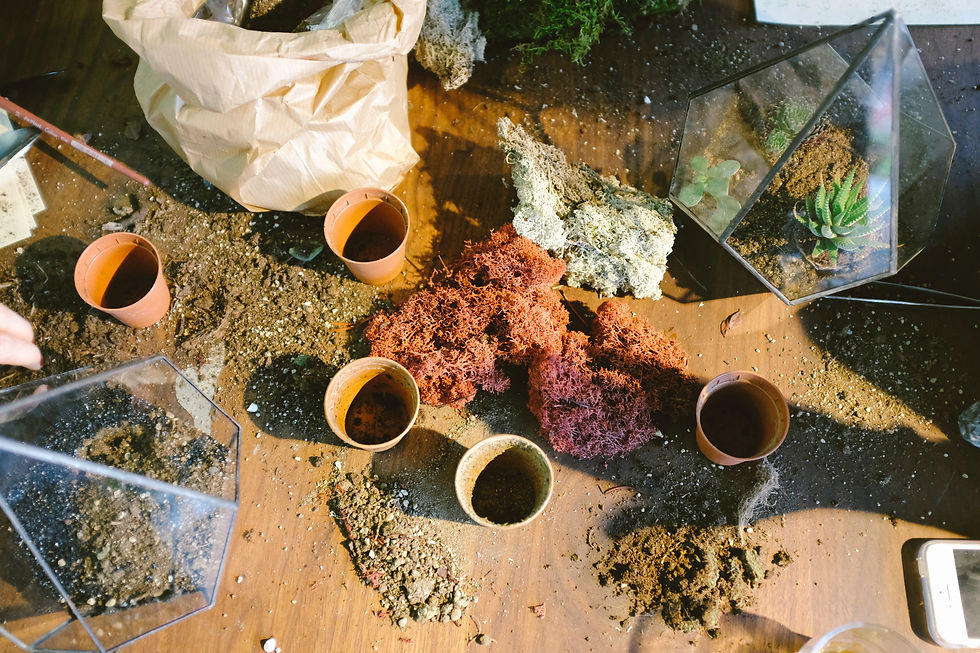Autumn houseplant care
- hello56406
- May 10, 2021
- 3 min read
As the seasons change, so do our indoor plants and their care. Here are our best tips to keep your houseplants alive and thriving as we slide towards winter.
Winter is coming. The leaves are turning and the evenings are turning nippy down here in New Zealand. Since most of our iconic houseplants come from a tropical native environment, it means that our winters aren't exactly kind to them, especially down here in Canterbury. Unless your living room has the same climate as a Guatemalan jungle (and if you do, please tell us BC we are MAD jealous), you're gonna need to listen up.
You might have already noticed your plant's growth slowing down already as the days shorten. We've already had our first frost and dusting of snow on the Southern Alps. This is a crucial time to step up our indoor plant care to make sure they both survive and do well over the next chunk of the year.
Here are our best tips for autumn houseplant care in New Zealand - good luck!

1. Bring your plants inside - obviously
I know, I know, I know. Blinding flash of the obvious. But seriously, if you have any indoor plants living outside in the summertime, before it drops below 15 degrees Celsius is when you want to be bringing them inside for the colder months.
Also be sure to do a pest check, control, and quarantine before mixing with your precious all-year-round indoor babies as it's easy to bring in unwanted visitors inside this way.

2. Repot if needed
Autumn is *kinda* your last chance to repot with ease. Try to imagine that come autumn and winter, your plants are either going dormant, close to dormancy or perhaps even struggling. Try not to shock them more.
Do we still repot in autumn? Cough, cough, sure.
Finally, since here at NODE we do most of our repotting in spring and summer, by the time autumn has rolled around, our plants need a bigger home and a pot size up. Just remember to only go up a pot size by an inch.

3. Lights lights lights
Ah, lighting. Perhaps the most important factor in healthy houseplants yet a concept so difficult to comprehend. Let us break it down for you in an easy way. Summer = long days of sunshine = lots of plant growth. Winter = shorter days = less sunshine = slow or nonexistent plant growth. The angle of the sun also changes which means you likely will need to shuffle your houseplants around to give them enough light. Or set up some grow lights.
Personally, come wintertime, I move most of my delicate tropical plants into the warmest room of my house which also has the most sun. However, that still isn't enough light for them so I supplement with grow lights.
Pro tip - if you're looking for nice grow lights that both blend seamlessly into your home, don't run up your power bill AND last forever, check out our PlantSpectrum range. Some are even on sale!

4. Resist the urge to overwater - RESIST!
In colder months, plants should be watered less often than in warmer seasons because they are getting less light and growing more slowly. For example, if you water weekly in the summertime, you might need to only water every 3 weeks in winter. With chillier temps, your chances of root rot run higher in summer.
If you're a notorious overwaterer, consider investing in some Sustee Aquameters, at least for your more precious plant children.
Oh, and fertilize less. Because your plants will likely not be actively growing, you can slow down or even stop fertilizing in the winter months. We tend to do monthly.

5. Bump up your humidity
Wintertime for us on the South Island usually means bigger power bills that come with running the heat pump 24/7 and/or burning a woodfire. By default, this means that the air indoors is going to be much drier, and you may want to invest in a humidifier and increase the humidity levels.
Many common houseplants prefer a humid environment - we're talking 60% + humidity. Plus, humidifiers are great for the air we breathe and good for our skin too. Group like-plants together to increase humidity. Compensate for hotter homes with more humidity.
Don't put plants in drafts, in front of (or even on top of) fires and near heatpumps.
Did we miss anything? What do you think? Have any autumn plant tips to share? Spill!




























تعليقات